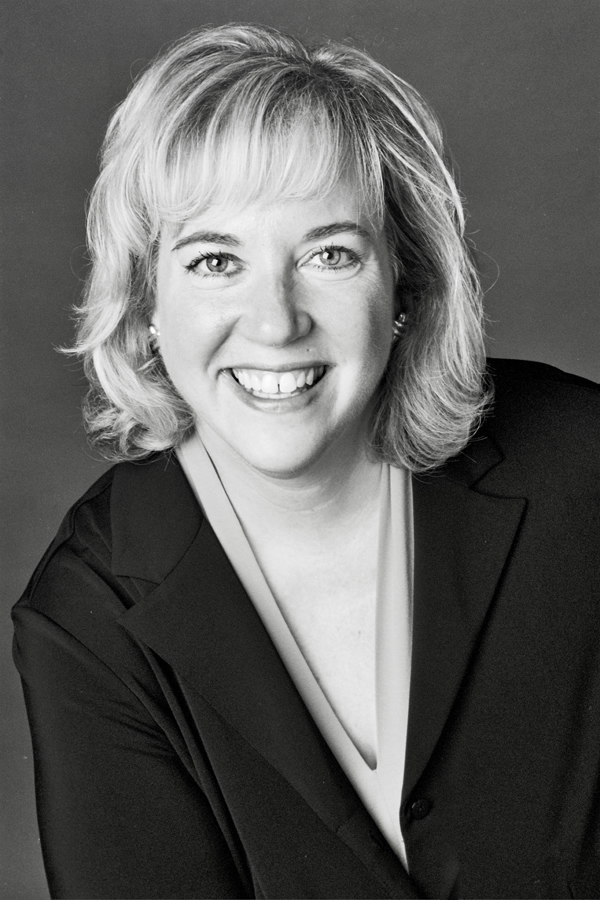Progress is making your way through the challenges and mistakes and picking up the learning along the way.
As a part of our series about “How To Give Honest Feedback without Being Hurtful”, I had the pleasure of interviewing Leslie Yerkes.
Leslie Yerkes is Founder and President of Catalyst Consulting Group, Inc. a Cleveland-based organizational development / change management consulting firm established in 1987. Leslie is passionate about leadership and employee engagement. She believes that we spend more time at work and with our co-workers than any other activity in our lives, so why can’t this contribution of working and working relationships be wondrous and rewarding?
Thank you so much for joining us! Our readers would love to “get to know you” a bit better. Can you tell us a bit about your ‘backstory’ and how you got started?
I did not plan on small business ownership but have always been entrepreneurial. When I could not find an organization who both worked to be good in their service and ethical in their business dealings, I metaphorically ‘jumped off the bridge without a bungee cord’ in starting my company. The good news is 34 years later we are still going strong having lived through natural and national disasters, economic downturns and a an evolving marketplace. I entered the field of organizational behavior long before anyone understood what that meant. It has been an eventful and joyous journey of learning.
What do you think makes your company stand out? Can you share a story?
I believe that we standout because we are practioners who have used all the process methodologies ourselves and know how to pick a good process tool. We partner with our clients in good times and bad and see our work through and their achievement of goals through to the end. I am proud to have earned the position of trusted advisor to many great leaders. I am grateful to have worked for leaders for whom I would ‘walk on hot coals’.
One of my favorite engagements was a long-term, systemic partnership with a local steel production facility who had been bankrupted and reorganized. This company was technically skillful but had not spent the time and energy in engaging their culture. We worked together for over ten years to envision a great place to work and then grow the competencies, have the values conversations and engage the workforce resulting in this location becoming the highest producing steel mill per man hour in the world.
Can you share the most interesting story that happened to you since you started your career?
Small business ownership is the best boot camp in the world. I have unlearned many bad habits and mastered the good. It has stretched and challenged me to be my best self. I have had the joy of writing six books about client companies, toured the world, met interesting people and contributed in ways that make me want to do it all over again.
I have learned much about being a woman in a ‘man’s world’. And yet, this world is changing very rapidly.
Can you share a story about the funniest mistake you made when you were first starting? Can you tell us what lesson you learned from that?
The mistakes are never ending. My mantra is learn from the mistake, take responsibility for the mistake and don’t moan it, move on. Progress is making your way through the challenges and mistakes and picking up the learning along the way. The most painful mistakes were always financial. And yes. I made too many.
What advice would you give to other CEOs and business leaders to help their employees to thrive and avoid burnout?
Burnout is a sneaky character. It is cumulative layer of stress that eventually take you down and limit your best competencies. I thought I had mastered balance and moderation but during this pandemic I found myself in the burnout ditch again. I just kept trying to remind myself that all work and no play made Jack and Jill ‘roll down the hill’ and it always catches up with me. I am still a work in progress … trying to be a whole person with a multi-faceted lifestyle.
How do you define “Leadership”? Can you explain what you mean or give an example?
Leadership is my passion and the most important ingredient for organizational well-being. I am worried that we are moving away for the definition of leadership I have always held and read in every book written. Leaders are visionary is guiding individuals groups and organizations into the future. They care about every member of their constituencies. They are guided by clearly shared values. They develop the people around them. They are generous with their praise and honest with their feedback. They model the behaviors they expect of others and hold themselves to the highest standards. They are human and do make mistakes but take responsibility. Good leaders communicate transparently, are authentic and not afraid of showing heart and empathy. You are a leader when someone is inspired to follow you.
In my work, I often talk about how to release and relieve stress. As a busy leader, what do you do to prepare your mind and body before a stressful or high stakes meeting, talk, or decision? Can you share a story or some examples?
Mental clarity and physical rests is essential for preparing for high stress times. I work hard to stay in balance physically — with sleep, nutrition and exercise being most important. I focus on my mental preparation with both technical skillfulness and a grateful, abundant and positive attitude. I belief in being spiritually grounded. My beliefs about people are rooted in counting on people to be basically good, well intentions, able to learn and when we work together we can create something greater than our individual selves. I make sure I am socially connected and maintain good family relationships and friendships. When I am in balance I can maintain my calm when the times become high heat. When the stress is really high — my most dangerous habit is a pint of ice cream. Those around us are counting on us to be calm, deliberative and thoughtful in all that we do.
Ok, let’s jump to the core of our interview. Can you briefly tell our readers about your experience with managing a team and giving feedback?
I love teams and yet they require constant care and feeding. High performance teams don’t achieve high performance without the right attention. As a group of people move through the different phases of developing trust, learning how to work together effectively, dealing with differences and growing into ownership and leadership of their work — they need a guide who knows how to lean in and when to let go. Giving feedback along this journey is essential to team development. My favorite model for feedback is to have individuals and the group assess themselves answering these three questions:
What do we need to do more of…..? Less of….? And not change?
This might seem intuitive but it will be constructive to spell it out. Can you share with us a few reasons why giving honest and direct feedback is essential to being an effective leader?
The best and kindest gift is to be honest. I want to be remembered for being the person who said what needed to be said, considerately. Good employees want to be told when it is working and when it is not. If they are given that feedback my experience is that they will take responsibility. It is a betrayal of their trust when we are not direct or honest.
One of the trickiest parts of managing a team is giving honest feedback, in a way that doesn’t come across as too harsh. Can you please share with us five suggestions about how to best give constructive criticism to a remote employee? Kindly share a story or example for each.
Long before you need to give the feedback one of the fundamental structures that a working team needs is to collectively establish a ‘Code of Conduct’. If you have this behavioral agreement from the get go, it is easier to give feedback using the respected agreement. When giving constructive criticism it is best to do it one-on-one, in person (if you can), in a timely fashion, with opportunity for discussion and committed follow-up.
Can you address how to give constructive feedback over email?
If someone is in front of you much of the nuance can be picked up in facial expressions and body language. But not when someone is remote.
How do you prevent the email from sounding too critical or harsh?
I would resist giving feedback via email or text. It is really a ‘human moment’ that requires you to be present. I would work very hard to find the time to talk by phone if not in person. The risk of making matters worse via email is too great.
In your experience, is there a best time to give feedback or critique? Should it be immediately after an incident? Should it be at a different time? Should it be at set intervals? Can you explain what you mean?
It depends. If the event needs immediate correction because of safety — do it immediately. If it can wait until all emotions have cooled and a time and place good for both people can be secured do it in a timely fashion. Feedback given too long past the event is not helpful to the individual. I always start by asking, ‘May I give you some feedback?” If they aren’t ready to receive, you effort falls on deaf ears.
How would you define what it is to “be a great boss”? Can you share a story?
The Gallup organization says our workforce doesn’t want a boss but would rather a coach. I agree.
If you have the supervisory responsibility for another person’s success then a great boss/coach has these qualities:
Competent
Character — leads with values
A good communicator
A developer of talent
Able to delegate
Trusting and Trustworthy
Treats all individual with respect
Honest and Caring
Self Aware and Able to assert Self Control
I personally have never had a great boss — but I did jump out of the workplace as an employee at the age of twenty-eight. Mostly I learned what not to do from my less than great bosses. I have however had the opportunity to work for great leaders. It is a pleasure to serve when you can be completely honest, risk take without fear, do bigger and better things than you ever dreamed and be thanked for the effort. That is the kind of boss I strive to be….fair and firm, loving and tough.
You are a person of great influence. If you could inspire a movement that would bring the most amount of good to the most amount of people, what would that be? You never know what your idea can trigger. 🙂
I believe we have many opportunities during this pandemic to ‘move the dial’ on many important transitions. I believing in helping to make each person able to access their best selves….in doing so….I especially focus on those that have been lesser advantaged or held back. I am an advocate for all people who want to do their best and bring their best selves to work each day. I think going virtual could make content accessible to all thus improving our education system. There is so much more for us to learn and do….I just want to always find my way into being relevant, reinvented for the need, in relationship and resilient to the change.
Can you please give us your favorite “Life Lesson Quote”? Can you share how that was relevant to you in your life?
Action without Vision is exercise;
Vision without Action is dreaming;
It is the combination of Vision and Action that creates change.
Anonymous


